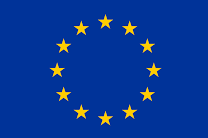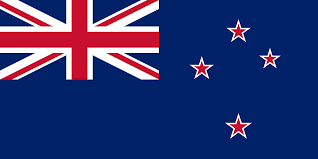SECTION 7
PREPARE TO ENTER THE MARKET
Understand the Target Market’s Export Requirements
Your business may need certain documents and face certain requirements that you need to meet to export to specific countries. For example, tariff rates, technical regulations, certification and testing of products, sanitary and phytosanitary measures, import and export restrictions, internal taxes, and customs valuation.
Each market has its own import procedures and requirements. This section provides information on the documents that your business may need to prepare to enter the target market and gives resources that explain the requirements that you need to meet in order to export to Timor-Leste’s top exporting markets: Australia, Canada, European Union (EU), Indonesia, Japan, Malaysia, New Zealand, People’s Republic of China (PRC), Republic of Korea, Singapore, Thailand, United States of America (USA). This section also provides the agricultural products that are commonly exported to each market between 2019 and 2021.
-
Customs Entry or Informal Clearance Document (ICD), an air waybill (AWB) or bill of lading (BLAD), as well as invoices and other documents relating to the importation.
These documents should contain the following information: invoice terms (e.g. FOB, CIF) name and address of the seller of the goods (Consignor) monetary unit referred to on invoice (e.g. AU$, US$), and country of origin
Australia Biosecurity Import Conditions - Import Procedure.
- You must obtain a Business Number (BN) issued by the Canada Revenue Agency (CRA) for an import/export account.
- Canada Customs Invoice, or a commercial invoice, bill of lading, manifest or cargo control document, shipper’s export declaration.
- The CBSA's Other Government Departments and Agencies: Reference List for Importers provides a list of some of the most commonly imported commodities that may require permits and/or certificates. More comprehensive information can be found in Memoranda Series D19, Acts and Regulations of Other Government Departments.
-
Businesses importing into the EU normally need to be established in the EU as a company or permanent business establishment. This includes being registered for VAT purposes.
If you are a non-EU resident, you need to have a work permit to carry out an independent commercial activity; furthermore, you need to find a person established in the EU who is willing to act on your behalf as exporter (e.g. a logistics service provider or customs agent)
-
Provide a customs declaration to your national customs authority.
Present an Entry Summary Declaration (ENS) before the arrival of the goods at the first point of entry into the EU. The EU has a common import declaration form for all EU countries, which is called the Single Administrative Document (SAD).
Depending on the type of goods, additional documents to be presented to customs authorities may include: commercial invoice, transport documents, certificates of origin, import licenses, test results and other certificates, inspection certificates (such as health, veterinary or plant-health certificates).
-
Some goods may require health, veterinary or plant-health certificates
-
You must obtain a Business Identification Number (NIB) to begin the import or export activities. Obtaining a NIB can be done through the Online Single Submission (OSS) system.
-
Commercial invoice, signed by the manufacturer or supplier as true and correct; Bill of lading, in three endorsed originals and four non-negotiable copies; Certificate of insurance; Packing list; NIB/import permit; and Customs import declaration.
-
Some goods may require additional license from the Ministry of Trade. E.g. An importer registration license; An import approval license for producer importers (companies that import materials used in the manufacture of their own products); or A general import approval license.
Additional certificates may be required by technical agencies for imported product such as food, pharmaceutical, seeds, or chemicals.
-
Commercial invoice, packing list, as well as an original, signed bill of lading or an air waybill if shipped by air.
You must declare the goods to the Director-General of Customs and obtain an import permit for your business.
-
Goods that may require import license. These include hazardous materials, animals, plants, perishables, and in some cases articles of high value.
-
You must register your business with the Companies Commission of Malaysia.
-
Customs export or import declaration; commercial invoice; bill of lading; packing List; and certificate of origin.
-
Goods that require license: agricultural products; animals (living or dead); foodstuff; iron and related products; heavy equipment; vehicles (including motorcycles); and plants.
- All imports have to be declared prior to entering New Zealand.
- Register with Customs for a declarant code and a unique user identifier (UUI) – this allows you to use the online services and EDI software.
- Register with Customs for a declarant code and a unique user identifier (UUI) – this allows you to use the online services and EDI software.
- The bill of lading, the invoice, the packing list, the customs declaration, the insurance policy, the sale contract and the inspection certificate of the AQSIQ (General administration of the PRC for quality supervision, inspection, and quarantine) or other licenses of safety and quality.
- You must apply for an import license for your business to MOFCOM (the Ministry of Commerce).
- Some products may require additional licensing, e.g. poultry, vegetable oils, wine, electrical and mechanical products.
- China has a list of restricted goods, e.g. Electronic or mechanical products that have been used, substances that squander the ozone layer, Food, fibre, and animal feed products that have some health risk.
- Prohibited products: Arms, ammunition and explosives, counterfeit currencies, lethal poisons, animals, food or plants coming from disease-stricken areas.
Import Requirements and Documentation
- Import declaration form; commercial invoice; certificate of origin; packing lists (two copies are required); bill of lading; a certificate of inspection; maritime insurance.
- Importers can make an import declaration online using the Korea Customs Service’s Electronic Data Interchange (EDI) system. See Import Procedure here.
- There are requirements and procedures for the import of certain products, including registration, standards and safety and efficacy testing.
- Health or safety related products, such as pharmaceuticals and medicines, require further testing or certification by the relevant organisations before they are cleared through customs.
- Imports of agricultural products generally must receive clearance from several agencies: the Korean Customs Service (KCS), MFDS, National Quarantine Office and the Animal and Plant Quarantine Agency.
- Korea allows temporary importation of commercial samples by nonresident individuals (more information is available here). The country accepts the ATA carnet.
- You must activate a Customs Account to receive an import or export permit for your business.
- If you are applying for the permit under your own name, then you will need to register as a declaring agent and apply for an inter-bank GIRO with Singapore Customs for any duty/GST payments.
- Customs permits, invoices or airway bills to the customs officers for verification.
- Any goods entering Singapore by sea will not require printed copies of supporting documents to be shown to checkpoint officers.
Commercial Food Imports
Licensing and Registration of Traders
- You must register your business with Thai Customs at one of the following: the Registration and Customs Privileges Sub-Division; Customs Procedures and Valuation Standard Bureau; or the General Administration Division at each Customs office.
- Submission of a customs’ export entry form or import entry form.
- Two checks are required before goods are imported: first, products that require an import permit (if any) must be identified. A range of goods requires import permits issued by different agencies before the date of arrival. Second, it must be ascertained if products are considered 'red line' goods (as opposed to green line). It is necessary to provide the following supporting documents for red line goods: bill of lading or air waybill; invoice; packing list; import license (if required); certificate of origin; other relevant documents (e.g. list of ingredients, technical standards certificates, etc.
- Some products may require an import/export license and/or authorization from relevant agencies. These include food products (processed or unprocessed), pharmaceuticals, medical devices, healthcare products, cosmetics, hazardous substances, animals, and some agricultural products
- Entry manifest or application and special permit for immediate delivery or other form of merchandise release required by the port director, evidence of right to make entry, commercial invoice or a pro forma invoice when the commercial invoice cannot be produced, packing lists, other documents necessary to determine merchandise admissibility.
- For ocean vessel shipments, exporters must fill out the Importer Security Filing (ISF/”10+2 and must electronically submit it to U.S. Customs and Border Protection (CBP).
- The US does not require an importer to have a license or permit to import goods from a foreign country, any item crossing the border into the US is subject to customs clearance and customs duties unless specifically exempted.
U.S. Customs and Border Protection
Food and Drug Administration
Customs Procedures











